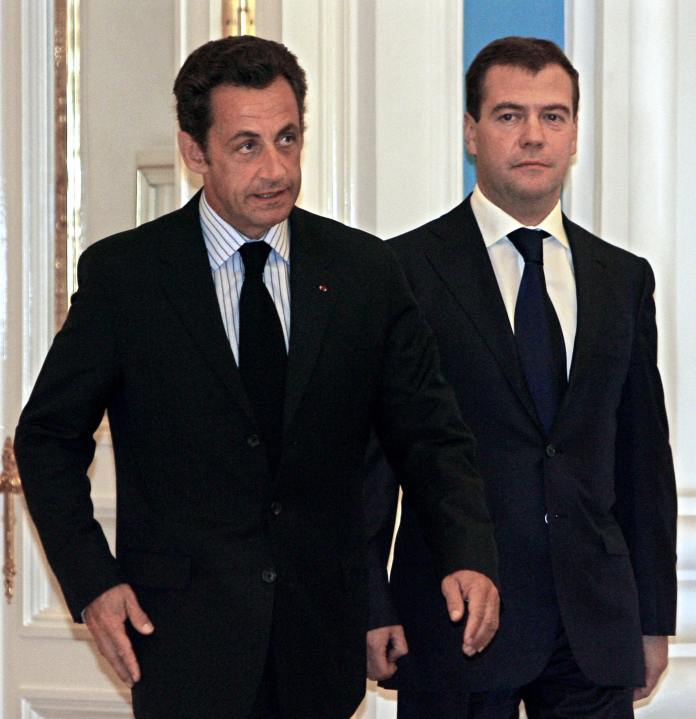 There are two things that the West should now do in relation to Georgia. The first is to help preserve the fragile truce that now exists between Georgia and Russia. That means that Western policymakers have to be involved, encouraging and prominent. They should not shy away from using the carrot and the stick, in the form of incentives and sanctions. And they should consider deploying a peacekeeping force in the region, and what its role would be. So far, the French have lead by example. Hopefully, that example will be followed by other nations – including Britain – at an emergency meeting of EU nations later today.
There are two things that the West should now do in relation to Georgia. The first is to help preserve the fragile truce that now exists between Georgia and Russia. That means that Western policymakers have to be involved, encouraging and prominent. They should not shy away from using the carrot and the stick, in the form of incentives and sanctions. And they should consider deploying a peacekeeping force in the region, and what its role would be. So far, the French have lead by example. Hopefully, that example will be followed by other nations – including Britain – at an emergency meeting of EU nations later today.
The second is to help find, as Gordon Brown put it, a “permanent solution” to the disputed territories of South Ossetia and Abkhazia. But things aren’t looking promising on that front. A sixth point was dropped from the five point plan brokered by the French – a point which would have held the Russians and the Georgians to holding international discussions on the futures of South Ossetia and Abkhazia. And the Georgian President, Mikhail Saakashvili, has even said that:
“The territorial integrity and belonging of South Ossetia and Abkhazia to Georgia can never be put under doubt.”
At the very least, this stubbornness leaves his country open to future Russian bullying. The best alternative would be a democratic solution to the problem, by way of internationally-monitored referenda in both South Ossetia and Abkhazia. Not only could this deliver to both regions the self-determination they’re alleged to desire, but it would also be good for Georgia. After all, it would help prove that country’s democratic credentials in the eyes of the West, thereby easing its entry into Nato. And, for the reasons outlined by James a fews day ago, that should be the utlimate goal now.







Comments